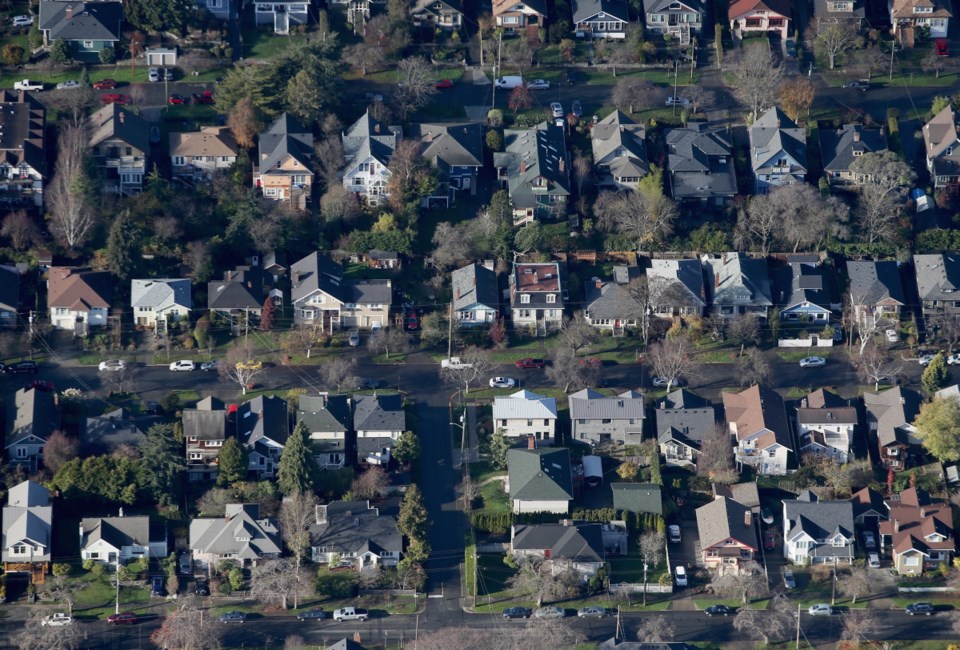Moderate house price increases and pricing levels out of sync with income have left Victoria’s housing market the only one in Canada deemed to be vulnerable, according to a report released Thursday by the Canada Mortgage and Housing Corporation.
The federal housing agency’s fourth quarter housing assessment said Greater Victoria’s housing market has a high degree of vulnerability, while the rest of the country was deemed to have a low or moderate risk.
But the news may not be as bad as it appears.
Braden Batch, CMHC market analyst, said the determination of vulnerability is a product of the system and may not necessarily reflect reality.
“It’s sort of a result of how the framework is constructed,” he said on Thursday, noting the agency takes four components —overheating, price acceleration, overvaluation and overbuilding — to determine an overall assessment.
Batch said because two of the components, overvaluation and price acceleration, were at moderate levels, Victoria was scored as high risk overall even though the imbalance in those categories is easing.
Overvaluation is determined by looking at house prices compared to personal income, population, interest rates and other fundamentals, while price acceleration is a sustained increase in the growth rate of prices over a given period.
Batch also noted that price acceleration was last detected to be over the threshold into moderate territory in the second quarter of 2017, and there is a three-year window before CMHC will downgrade it to a low degree of vulnerability.
He said the data they are seeing now suggests prices are starting to come down a bit in some segments of the market, while other segments like the affordable end of the spectrum have seen some strengthening of price.
Overall, Batch said the Greater Victoria market is starting to become better stocked and more inventory is constantly being added for would-be potential buyers.
The country as a whole got a moderate risk rating from CMHC, its third in a row, after it had been flagged as high risk for two and a half years.
CMHC said the narrowing risk comes as home prices ease somewhat, with the average price down 0.6 per cent in the second quarter of this year compared with last, while the young-adult population continued to grow at 1.9 per cent to increase the pool of potential first-time homebuyers.
The Canada Mortgage and Housing Corp. said Toronto and Hamilton have been downgraded from high risk to moderate, joining Vancouver, Edmonton, Calgary, Saskatoon, Regina and Winnipeg.
The federal agency noted that Ottawa, Montreal, Quebec, Moncton, Halifax and St. John’s all showed a lower degree of vulnerability.



